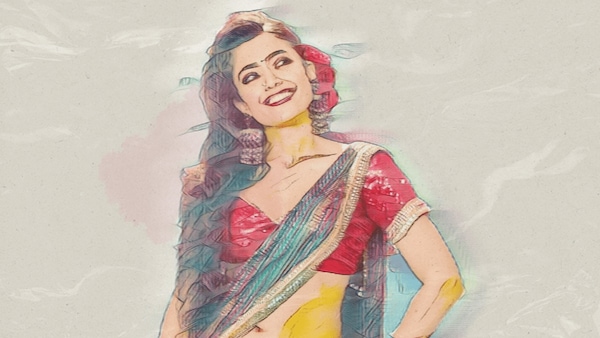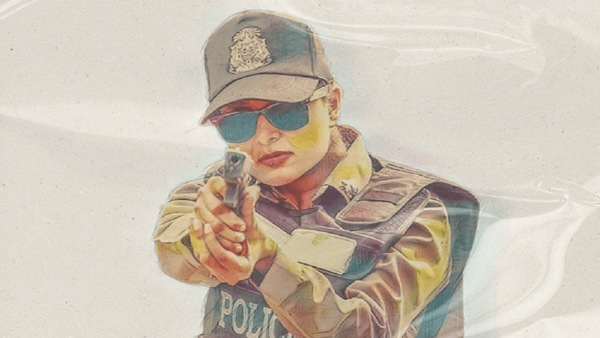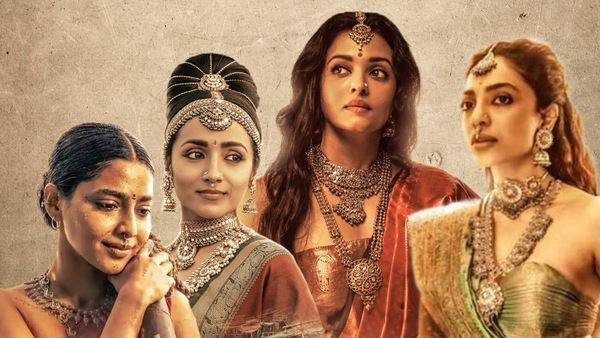Tamil Cinema Has An Actress Problem It Needs To Address
Tamil cinema has a curious dichotomy when it comes to onscreen representation of women. Despite the presence of powerhouse actresses, and an audience for heroine-centric films, commercial titles tend to relegate them to ornamental status, writes Subha J Rao.

Last Updated: 06.17 AM, Jan 30, 2023
When American cartoonist Alison Bechdel introduced the idea of the 'Bechdel Test' in a 1985 comic strip, she stipulated a simple parameter to measure the representation of women in a work of fiction or film: Does the film have at least two women talking to each other about something other than a man? And, bonus points if the two women were actually named.
Watching Vamshi Paidipally’s Vijay-starrer Varisu was an unpleasant reminder that even in 2022, the Bechdel Test is far from redundant. Witnessing the Twitter debate over whether or not Rashmika Mandanna's character in the film even had a name was about as surreal as viewing that same character, in segments that depict her as a bespectacled, braces-wearing teen, being body-shamed and ridiculed. If Mandanna had anything to do in Varisu beyond looking pretty, indignant or understanding by turns, it was far from evident.
Meanwhile, Sangeetha, who plays Mandanna's sister in the film, is shown returning home to her philandering husband. When he apologises, she hugs him — no questions asked. The little hint of understanding that Vijay's character initially displays merely turns out to be posturing.
In H Vinoth’s Thunivu, starring Ajith, the formidable Manju Warrier plays a gun-toting woman who laughs, smiles and looks stern on cue. What drives her to kill? Why is she broken? No one knows.
And these are three extremely gifted performers.
In Bharat Kamma’s Dear Comrade, Mandanna depicted myriad moments of tenderness, pain and grit, acing them all to embody the character of Lily. In Bala’s Pithamagan, Sangeetha hid a heart of gold behind an abrasive, paan-chewing demeanour. As for Warrier, where do we even begin with listing her many powerhouse performances?

***
Over December 2022, there were four heroine-centric films in the theatres — Connect (Nayanthara), Raangi (Trisha), Driver Jamuna (Aishwarya Rajesh) and Sembi (Kovai Sarala). Then again, heroine-centric films in Tamil cinema are not a recent phenomenon. Nayanthara's "Lady Superstar" moniker came about because of precisely such films.
Other powerful performances from 2022 included Sai Pallavi in Gargi, Keerthy Suresh in Saani Kaayidham, Nithya Menen in Thiruchitrambalam, Dushara Vijayan in Natchathiram Nagargiradhu, Aishwarya Rajesh in all her films, Aishwarya Lekshmi in PS1 and Gatta Gusthi, and Trisha and Aishwarya Rai in PS1. In a curious dichotomy, this was also the year when many filmmakers took for granted the presence of real-life female characters on-screen. Even actors who spearheaded projects in languages such as Telugu (think Samantha Ruth Prabhu) found themselves relegated to the typical heroine trope in Tamil.
Vinoth concedes he does not write emotion or romance well, and Lokesh is still a work-in-progress in writing women — notwithstanding the fact that he gave us 2022’s most riveting Agent Tina in Vikram. The other star vehicles of 2022 floundered when it came to showcasing their women — in Vijay-starrer Beast, Pooja Hegde only had to look good and dance well, while Ajith-starrer Valimai had at least some substance underpinning Huma Qureshi's role.
***
When did we begin losing the heroines we loved in Tamil cinema? They were good actors, knew the language (or at least learnt it), and walked shoulder to shoulder with the hero in commercial films too — in the mould of Sridevi, Revathi and Suhasini and later Khushbu, Simran, Sneha and Jyothika. National Award-winner Keerthy Suresh is a joy on screen when in her element and with a good director on board, but folks are still figuring out how to use her in star vehicles.
What must heroines do to be taken seriously as performers and demand more than the crumbs being thrown at them in big budget films? Sudhir Srinivasan, the executive editor (Entertainment) at a leading daily, says: “I’d hate to burden women actors with the responsibility of making demands about these roles. They seek to survive and pick work from among the scripts they are offered. Hero vehicles help them stay in the limelight. The burden of meaningful writing and filmmaking is not on them; questions must instead be asked of filmmakers and stars. Writers must look at women, not as characters that must somehow be mandatorily forced into a narrative but truly, acknowledge and internalise the roles they play in family, society, and our lives. Then, hopefully, the portrayal of women won't be a check-box being ticked. Then, hopefully, it'll happen naturally.”

Srinivasan makes a fair point, but going by this logic, few big-ticket films make the cut. Film critic Sowmya Rajendran, who is known for her distinct feminist gaze, feels that “space for heroines in commercial cinema started shrinking when directors started getting non-Tamil speaking women actors. Barring some, most could not speak their dialogues or get the pronunciation right. So, the talking part of their roles got reduced or they were cast in the mould of the ‘loosu ponnu’, who played the love interest, danced, and stepped away”.
Eventually, hyper-masculine heroes came to monopolise centre stage. “The film has now became about the hero. This was not so even when Rajinikanth and Kamal Haasan were in their prime. The antagonist would be well-written and played by a performer. No one was restricted to being in the background,” says Rajendran.
***
The tragedy of Tamil cinema is that even when it works with actors who call pull in audiences, it restricts them severely in star vehicles. Nayanthara can command an early morning show for the well-written Kolamaavu Kokila, but barring Viswasam, which was a typical Ajith movie (with a strong role for the heroine), she has not had the chance to showcase her acting chops in a male star vehicle.
Rajendran cites Samantha’s example. “She did an Oh Baby! and a Family Man where she aced the action scenes, yet she is given decorative roles in Tamil. The same with Rashmika Mandanna. It’s almost like they are telling you that all that matters is ‘vella thol’ (fair skin). And then we have directors who don’t know how to write female characters of merit.” She observes that filmmakers like H Vinoth could take a leaf out of Pa Ranjith's book: the director is known to seek help from his female assistants in writing women characters, like Rene of Natchathiram.
Rajendran points to two films that had a meaningful arc for their heroines: Thiruchitramblam (Nithya Menen) and 96 (Trisha). Easwari Rao’s character in Ranjith’s Kaala is another that she considers impactful.
Film journalist and content producer Sujatha Narayanan, on the other hand, cites the example of Michael Madana Kama Rajan, to underscore how even in a film with four Kamal Haasans, each of the women stood out. “Or even Thevar Magan. Bhanumathi (Gautami) was written with such self-respect,” she recalls.

***
In Narayanan's opinion, this rush of star vehicles with sub-par female characters is a fallout of the pandemic. "Producers needed the audience to come back to the theatres, and went in for these larger-than-life stories that revolved around heroes... Actors can only choose from what is being offered to them. The writer and director are to be blamed for films with terrible female representation,” she says.
In the past, Neelambari (Ramya Krishnan) in Padayappa and Shanti Devi (Vijayashanti) of Mannan, both Rajinikanth starrers, would be held up as examples of strongly-written women. But Narayanan has an astute counterview: "Why did you like them?" she asks. "Because they were strong, or because the hero ‘tamed’ them?" "We need women with agency," she concludes. She points to Asin in Ghajini and Trisha in Ghilli as heroines who had well-written roles in mainstream films (even though Asin departs early in Ghajini).
Similarly, Sudhir Srinivasan believes that Manju Warrier's role in Thunivu wasn't devoid of merit. "It's an action film, and a star vehicle, and yet, even if she barely gets to speak, she does get to kick ass. And that has its own value. Agent Tina in Vikram falls under this category as well. Both these films are quintessential examples of a hero vehicle. This tells us it's not really about how much screen-time women actors get, or how many [lines of] dialogues they have. We understand that a hero vehicle has little interest in looking beyond the hero. And yet, all we ask is that the film attribute purpose — any purpose — to its women, instead of treating them like trinkets.”
Sowmya Rajendran agrees. “Many directors tend to think a well-written female character means a female-centric film," she says. "But no. What we want is just believable, meaningful women characters.”
